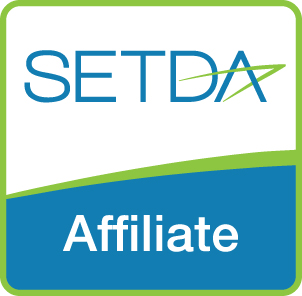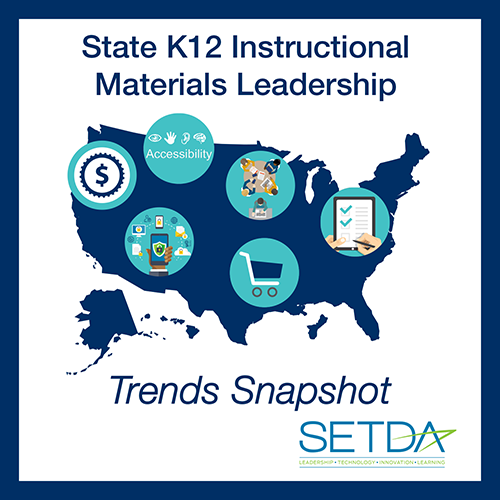

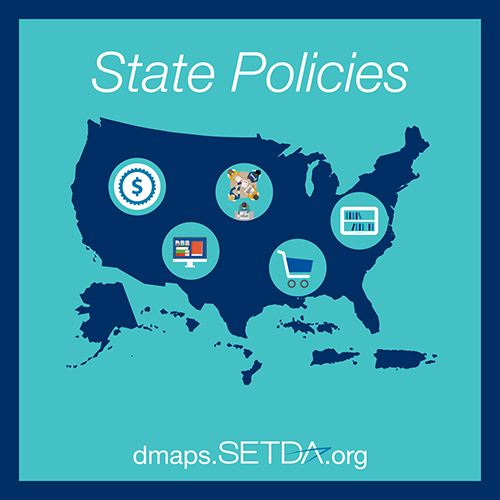
DMAPS: Digital Instructional Materials Acquisition Policies for States
Updated in 2019 (originally launched in October 2015), the goal of the DMAPS portal is to provide a clear picture of each state’s instructional materials policies and practices to help encourage increased implementation of digital learning. Educators, policy makers and private sector executives have the opportunity to learn about state policies and practices related to digital learning, instructional materials, procurement, and professional learning.
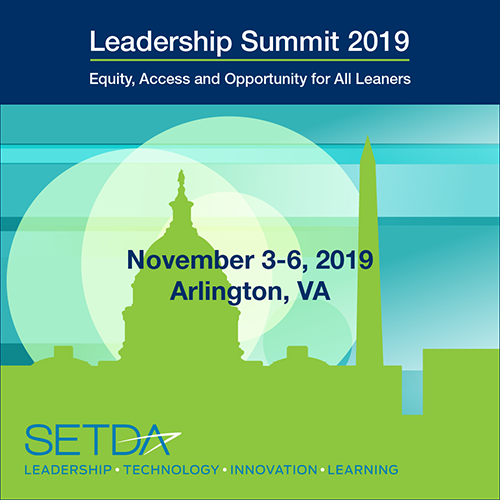
2019 Leadership Summit & Education Forum
The Leadership Summit brings state educational leaders to the Washington D.C. area to participate in this unique professional learning opportunity. Leaders from more than 40 state departments of education, including leaders in educational technology, assessment, instructional materials and professional development, along with SETDA’s Private Sector Partners attend.
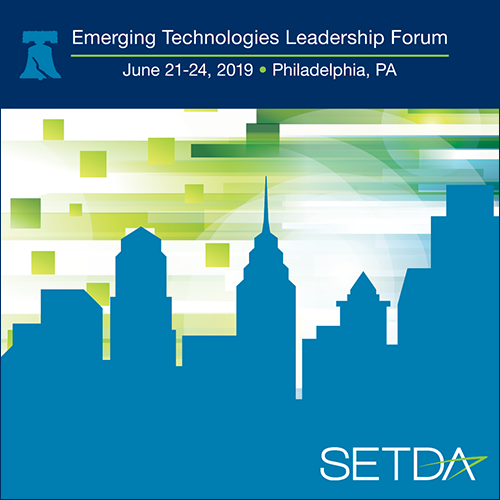
2019 Emerging Technologies Leadership Forum
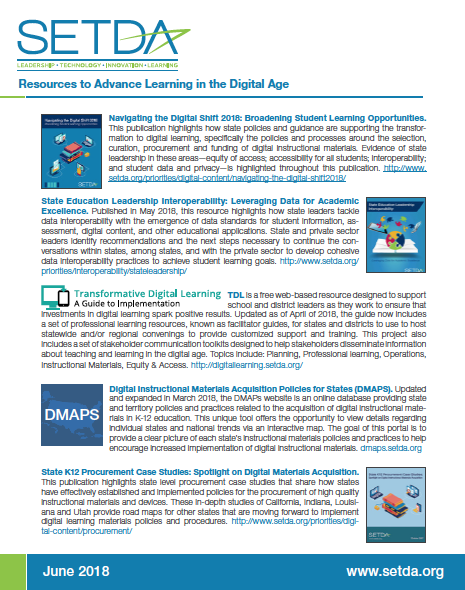
SETDA Resources 2018
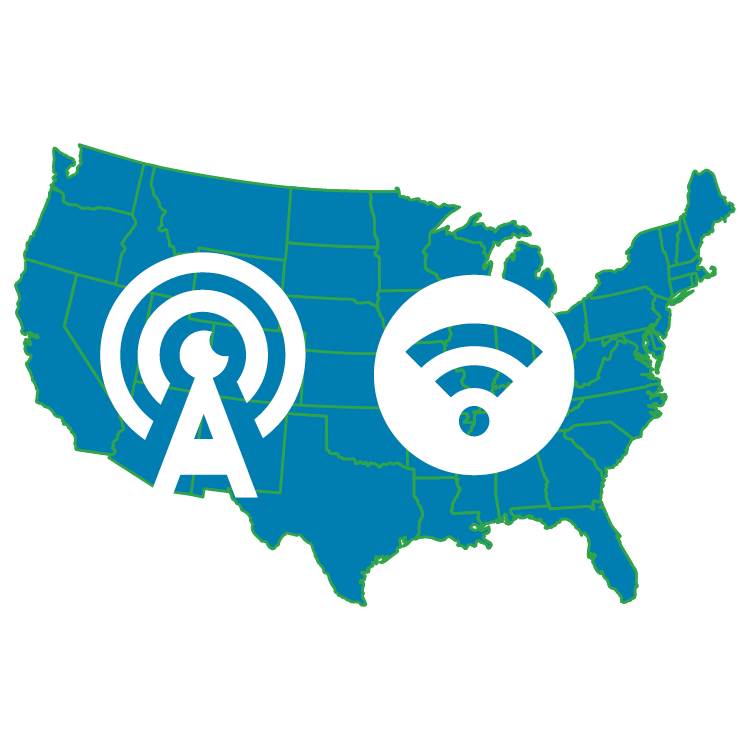
E-rate Overview Document
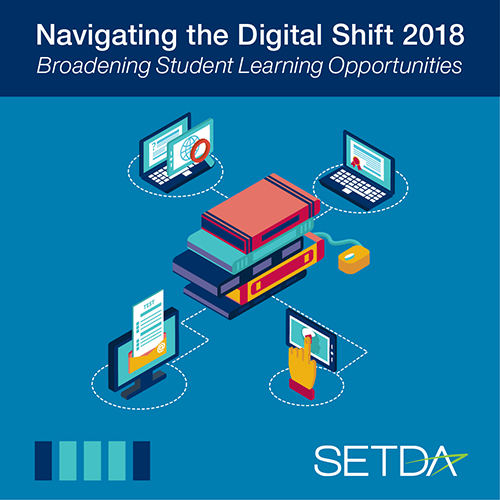
Navigating the Digital Shift 2018: Broadening Student Learning Opportunities
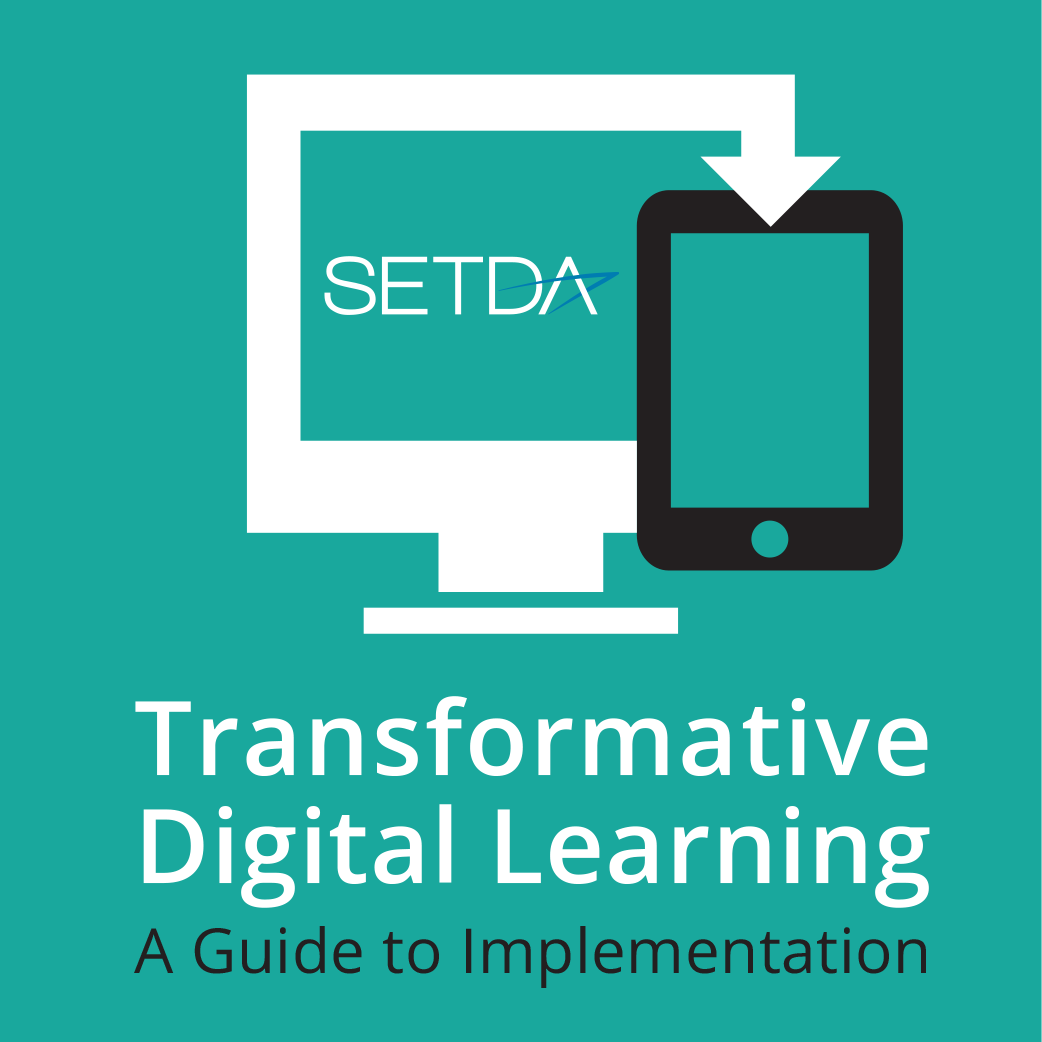
Transformative Digital Learning: A Guide to Implementation
SETDA developed professional learning resources to help build state-level capacity for the transition to digital learning. The online tool includes a set of professional learning resources, known as facilitator guides to provide customized support and training and a set of stakeholder communication toolkits.
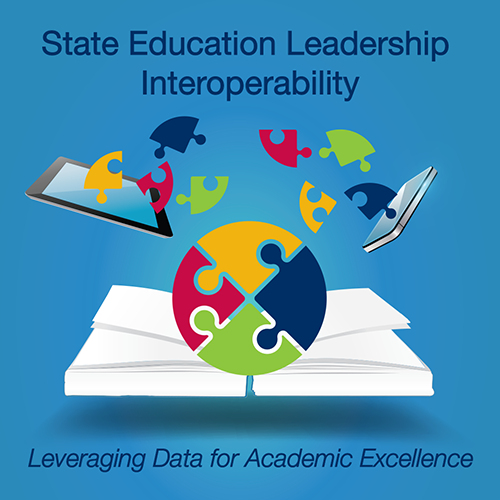
Leveraging Data for Academic Excellence
This report examines the current data interoperability efforts in nine states: Delaware, Georgia, Michigan, Nebraska, North Carolina, Oregon, Utah, Wisconsin, and Wyoming. Throughout the report, states explore the successes and challenges in making interoperable solutions where data is seamlessly connected and readily available for use by decision makers, teachers, parents, and students. This report includes a set of use cases demonstrating how interoperability helps states and districts achieve student learning goals, as well as recommendations for states as they continue their work in this area.
